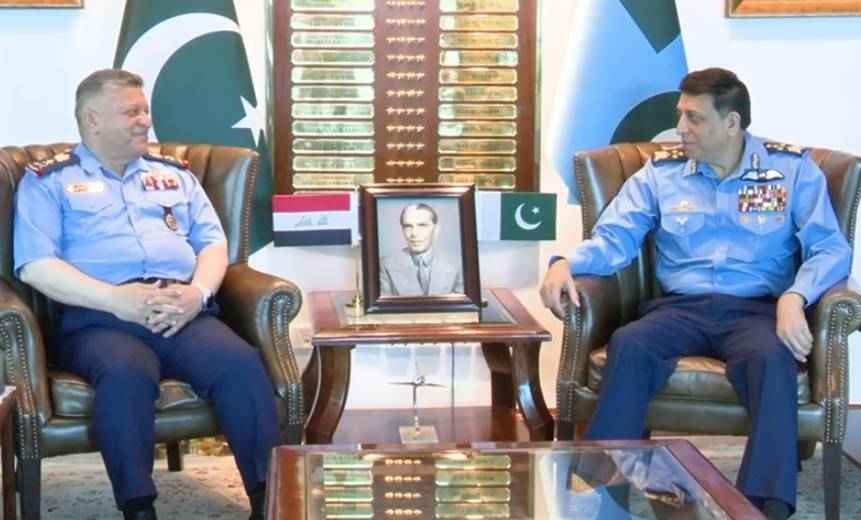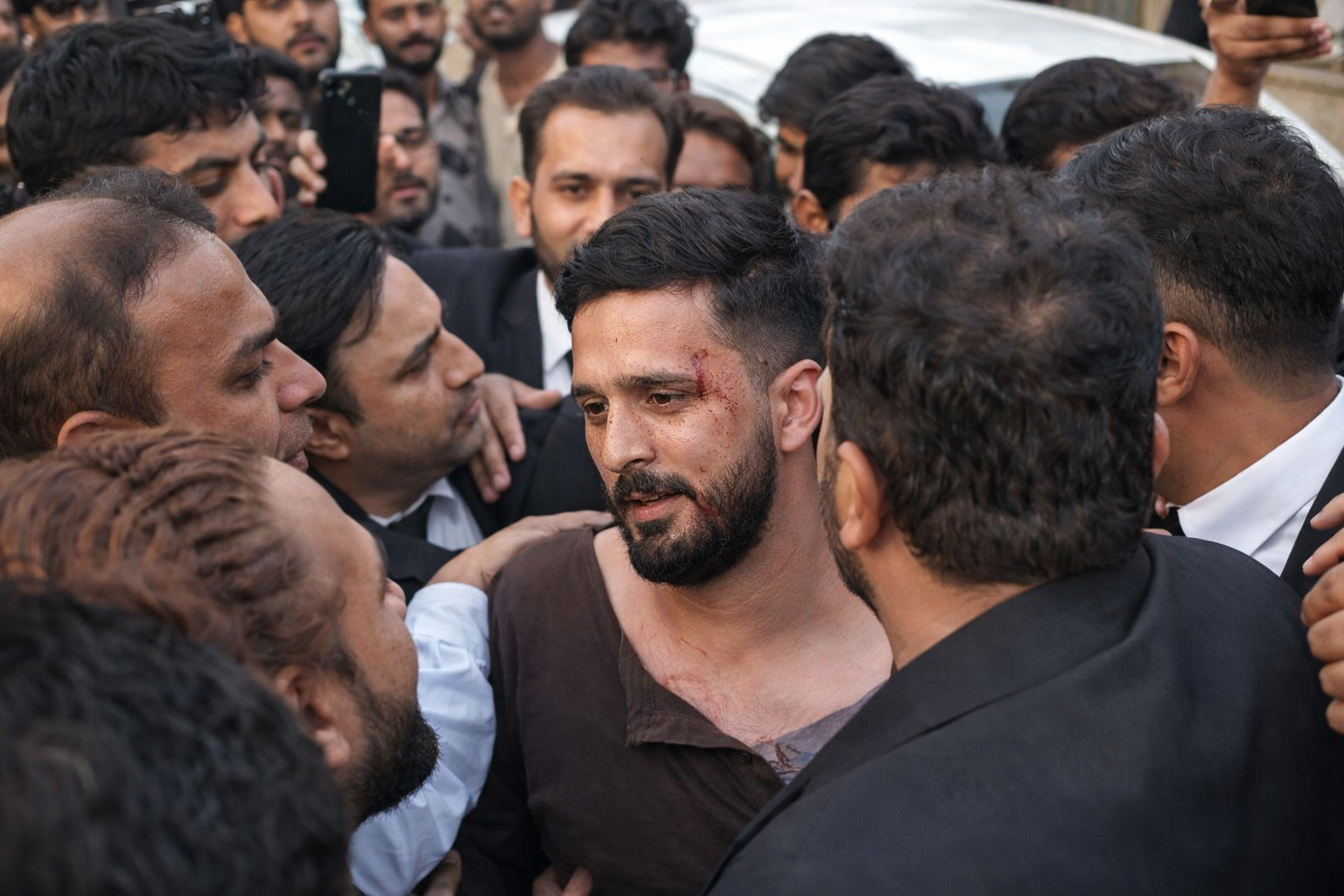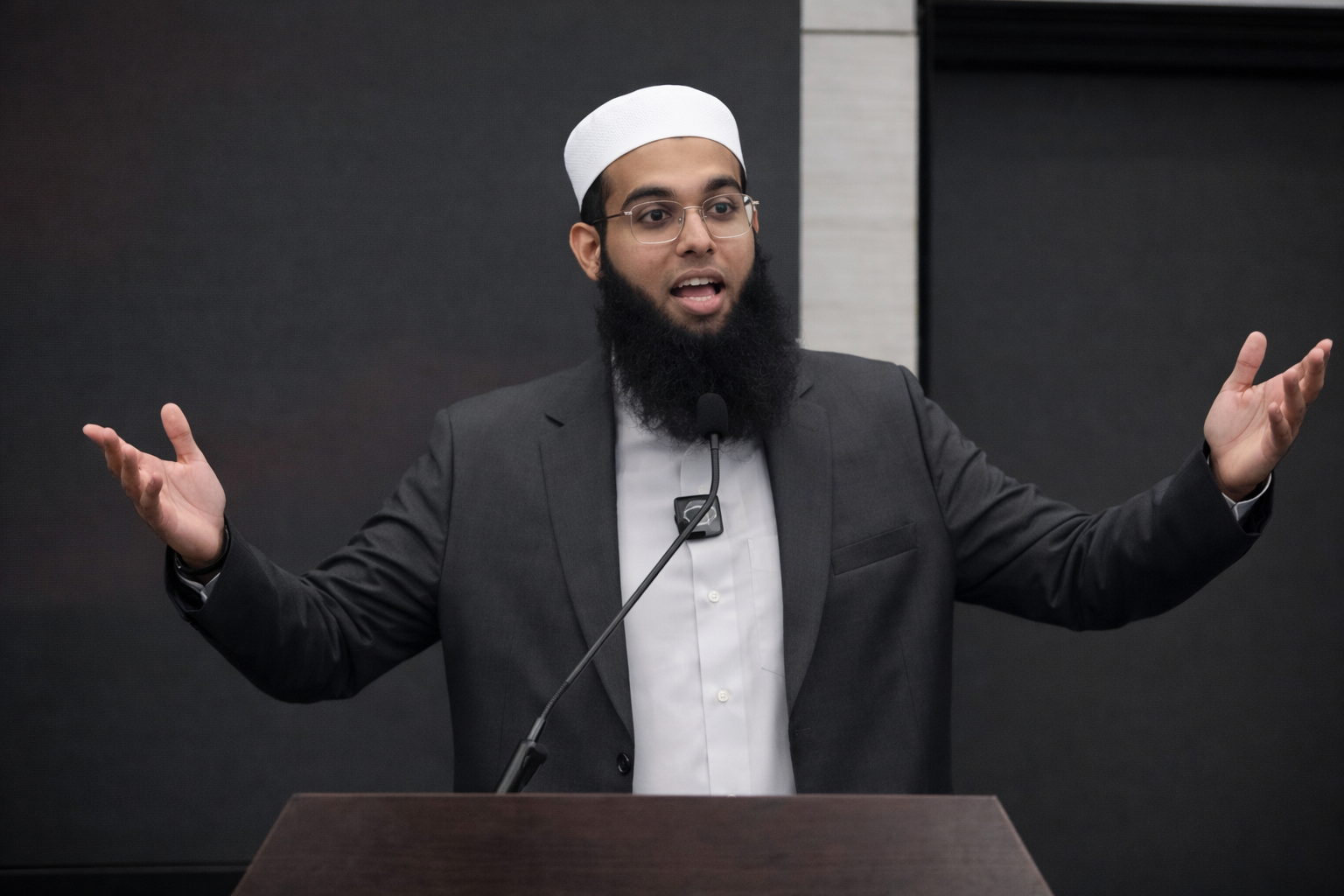A New Chapter in Military Cooperation
On September 11, 2025, Iraq took a bold step to strengthen its air force by seeking a pilot training partnership with the Pakistan Air Force (PAF). A high-level Iraqi delegation, led by Lieutenant General Staff Pilot Mohanad Ghalib Mohammed Radi Al-Asadi, visited Islamabad to discuss the Iraq-Pakistan Pilot Training initiative, aiming to revamp Iraq’s aviation training from basic to advanced levels. The Iraq-Pakistan Pilot Training talks, held with PAF Chief Air Chief Marshal Zaheer Ahmed Baber Sidhu, have sparked excitement about deeper military ties between the two nations.
The Iraq-Pakistan Pilot Training proposal has grabbed attention, highlighting a growing bond between Iraq and Pakistan. Here’s the full story on the Iraq-Pakistan Pilot Training, its significance, and what it means for both countries’ air forces.
What Sparked the Iraq-Pakistan Pilot Training Initiative?
The Iraq-Pakistan Pilot Training effort began when Lieutenant General Al-Asadi, Commander of the Iraqi Air Force, met PAF Chief Sidhu at Air Headquarters in Islamabad on September 11, 2025. The Iraqi delegation, welcomed with a Guard of Honour by a smartly turned-out PAF contingent, expressed admiration for Pakistan’s modern, combat-proven air force. Al-Asadi emphasized Iraq’s desire to restructure its training system, seeking the Iraq-Pakistan Pilot Training partnership to learn from PAF’s expertise. He proposed exchange postings for Iraqi pilots to train with PAF’s seasoned professionals, according to a statement from Pakistan’s Inter-Services Public Relations (ISPR).
READ NEXT: Apple iPhone 17 Disappointment $50B loss after launch
The talks focused on joint training, capacity building, and advancements in aviation technology. Iraq, keen to emulate Pakistan’s National Aerospace Science & Technology Park, sees the Iraq-Pakistan Pilot Training as a way to modernize its air force. The visit follows a history of cooperation, including Pakistan’s delivery of Super Mushshak trainer aircraft to Iraq in 2023, reinforcing the foundation for this new training collaboration.
Why This Matters
The Iraq-Pakistan Pilot Training initiative is a big deal for both nations. For Iraq, it’s a chance to rebuild its air force, which has faced challenges since the 2003 US invasion and subsequent conflicts. By tapping into PAF’s world-class training, known for producing skilled pilots, Iraq aims to boost its operational capabilities. The partnership strengthens military ties, building on deep-rooted religious and cultural bonds between the two countries, as highlighted by Sidhu during the meeting.
For Pakistan, the Iraq-Pakistan Pilot Training deal showcases its growing influence in regional defense. PAF’s commitment to support Iraq’s capacity-building efforts, as reaffirmed by Sidhu, positions Pakistan as a key partner in aviation training. The could pave the way for more collaborations, like joint exercises or technology transfers, enhancing both air forces’ interoperability and regional security.
Public Reaction and Social Media Buzz
The Iraq-Pakistan Pilot Training announcement lit up X on September 11, 2025. Pakistanis expressed pride, with one user posting, “Iraq-Pakistan Pilot Training PAF’s expertise shines!” Another wrote, “Iraq trusts our air force for a reason!” Hashtags like #IraqPakistanPilotTraining trended, with images of the Guard of Honour ceremony going viral. A user shared, a win for both nations!”
Iraqi users also chimed in, with one commenting, “Thank you, Pakistan, for supporting our air force!” Some speculated on future outcomes, saying, “Iraq-Pakistan Pilot Training hope it brings more joint missions!” The buzz reflects enthusiasm for the partnership, with the seen as a symbol of trust and cooperation between the two countries.
Challenges Amid the Partnership
The Iraq-Pakistan Pilot Training initiative faces hurdles. Iraq’s air force, still recovering from decades of conflict, lacks the infrastructure to fully implement PAF’s advanced training methods. Logistical challenges, like coordinating exchange postings and aligning training curricula, could slow progress. The also requires significant investment, with Iraq needing to fund pilot exchanges and potential equipment upgrades, which may strain its budget.
For Pakistan, balancing the Iraq-Pakistan Pilot Training with other international commitments, like recent talks with Turkiye and UAE, poses a challenge. Ensuring Iraqi pilots adapt to PAF’s rigorous standards, including combat-proven tactics, will demand careful planning. Despite these obstacles, the Iraq-Pakistan Pilot Training is poised to succeed, with both sides committed to overcoming logistical and financial barriers.
A Glimmer of Inspiration
The Iraq-Pakistan Pilot Training initiative is a beacon of hope and collaboration. It showcases the power of shared goals, as Iraq and Pakistan unite to strengthen their air forces. One X post captured it: building bridges through skills!” The partnership inspires pride in Pakistan’s expertise and Iraq’s determination to rebuild, reflecting a spirit of mutual support.
The Iraq-Pakistan Pilot Training highlights how nations can work together to achieve excellence, offering a model for other countries. It’s a reminder that cooperation can overcome challenges, making a symbol of unity and progress in military aviation.
What’s Next for Iraq-Pakistan Pilot Training?
The Iraq-Pakistan Pilot Training partnership is just the beginning. Both air forces plan to finalize agreements for pilot exchanges and joint exercises, with potential training programs starting in 2026. Iraq may adopt elements of PAF’s training model, including simulator-based exercises and combat tactics, to modernize its air force. The could also lead to technology sharing, with Pakistan possibly supplying more Super Mushshak aircraft or other equipment.
Supporters are urged to follow updates on this collaboration and share messages of encouragement on social media. The Iraq-Pakistan Pilot Training is a call to celebrate military partnership and innovation, strengthening ties between Iraq and Pakistan. Stay tuned for updates on and its impact on regional defense.



